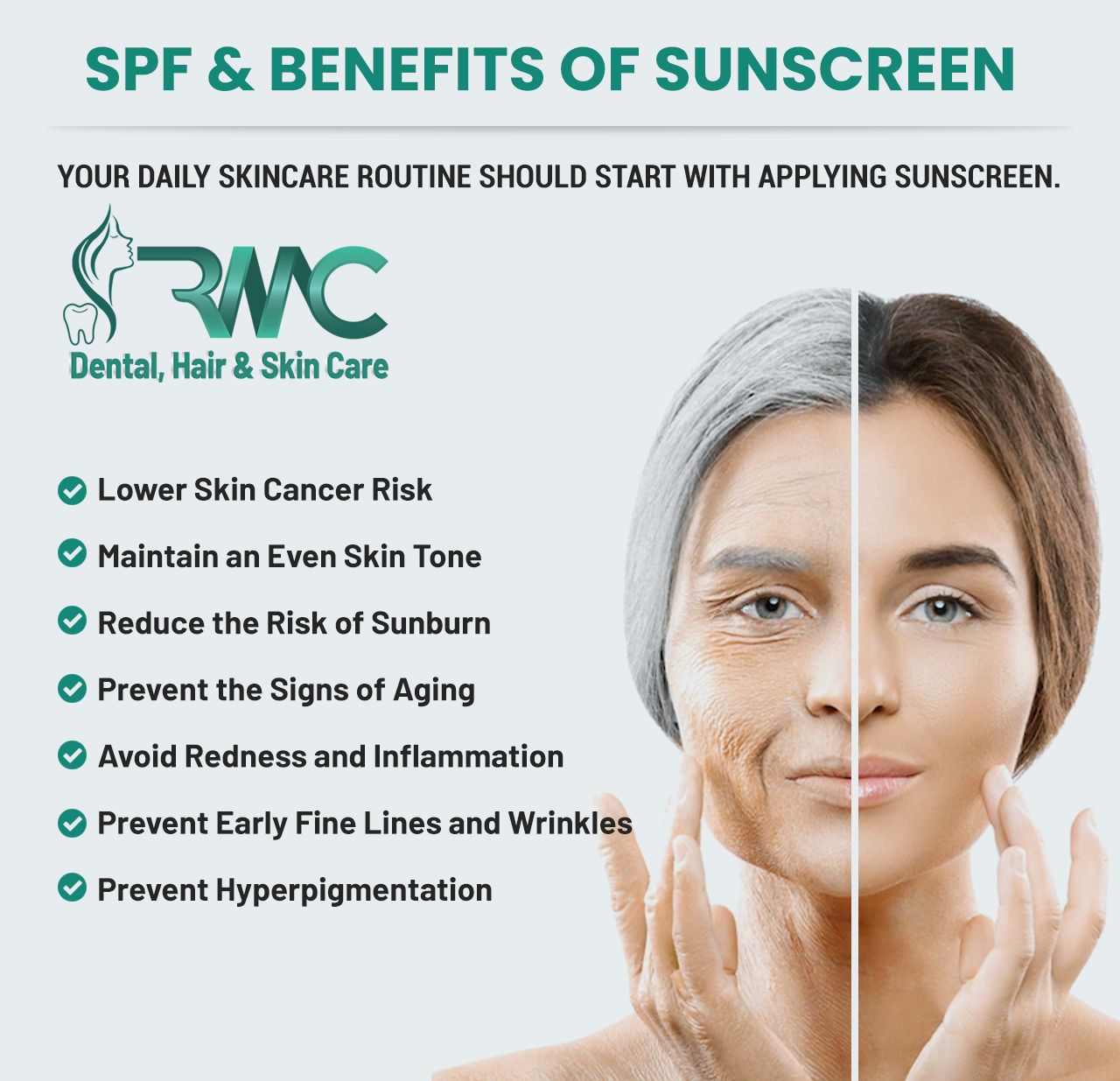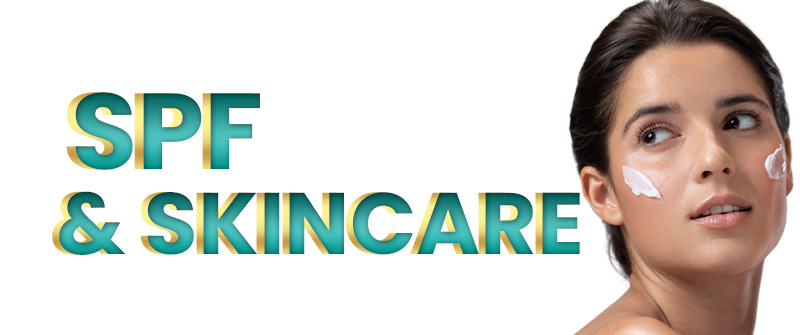Why Is SPF Important In Skincare?
SPF is very important; it’s no joke. Most of us know how important it is to wear sunscreen during the summer to prevent sunburn and skin damage, but it should be a year-round preventive health measure.
Sunscreen should be worn every day, even in the cold. It is important to apply more sunscreen as the days get hotter and to remember to reapply frequently. Always wear sunscreen, no matter the tone or color of your skin.
The biggest change you can make to your routine to help protect your skin is to apply sunscreen every morning and throughout the day. Anyone older than six months should use sunscreen every day.
Want to know more about it? So, start reading this blog.
What is SPF?
The SPF, or Sun Protection Factor, is a number assigned to your sunscreen or any other face cream for sun protection, and it tells you how much sun protection it offers. Higher SPF products are stronger and offer a greater level of protection.
The idea that doubling the SPF number will provide twice as much protection is common. For instance, a product with an SPF of 50 does not offer twice as much protection as an SPF of 25 does.
Each skin type is unique and responds to sun exposure differently. Therefore, the SPF number is merely a recommendation for the product’s level of protection.

Benefits of Sunscreen
Your daily skincare routine should start with applying sunscreen. Some of the reasons for sunscreen’s significance are already known to you, but others could be unfamiliar.
Therefore, for your help, we gathered some great benefits you will always keep in mind, and don’t forget to wear sunscreen.
-
Lower Skin Cancer Risk
The most common kind of cancer is skin cancer. Approximately 65% of melanomas and 90% of non-melanoma skin cancers are linked to sun exposure. Therefore, you can significantly lower your risk of skin cancer by using sunscreen daily.
-
Maintain an Even Skin Tone
It is much more effective to use sunscreen to stop the damage from occurring in the first place rather than trying to harm your skin. Your skin tone will be even and attractive as a result of this.
-
Reduce the Risk of Sunburn
All dermatological professionals will emphasize the significance of skin protection and avoiding sunburns. Spending a lot of time outside without sunscreen and utilizing tanning beds or booths might result in sunburn.
Consistent sunburns can result in damage that can lead to skin cancer, premature aging, and various other skin problems.
-
Prevent the Signs of Aging
With little to no protection, repeated sun exposure can harm your elastin, collagen, and skin cells. Early aging signs like discoloration, wrinkles, fine lines, and a leathery appearance may eventually result from this.
Without sunscreen, people are more likely to age prematurely or photoage, especially those in their 20s and 30s. Thankfully, using a sunscreen every day can prevent these skin issues.
-
Avoid Redness and Inflammation
Our skin can become painfully red and swollen when exposed to UV light. This can be particularly difficult for people with skin conditions like psoriasis or rosacea.
Inflammation caused by damaging rays can be avoided by using sunscreen daily. If you have sensitive skin that is prone to redness, look for a sunscreen containing calming ingredients like zinc oxide or titanium dioxide.
Additionally, stay away from sunscreen sprays because they could contain abrasive ingredients like alcohol that will dry out your skin. If you want assistance picking a product or have inquiries about your skin issues, get in touch with an expert dermatologist.
-
Prevent Early Fine Lines and Wrinkles
Sunscreen is among the most effective anti-aging treatments for wrinkles, fine lines, and crow’s feet.
Your skin ages prematurely from prolonged UVA exposure, which lowers collagen formation and makes it less elastic. The truth is that sun damage is responsible for up to 90% of the visible signs of aging. With just a little effort, you can prevent the first signs of aging with just a little effort by incorporating SPF into your daily skincare routine.
-
Prevent Hyperpigmentation
Uneven skin pigmentation, also known as hyperpigmentation, is the term used to describe areas of the skin that change color or tone unevenly. Both sun exposure and inherited conditions can result in this. Blotchy skin or dark spots may appear on the face, hands, and other body areas that are frequently exposed to the sun.
Wearing sunscreen year-round, not just in the summer, is an easy approach to preventing dark spots as well as sunburn, wrinkles, and skin cancer.
Where Should You Wear SPF?
Wearing sunscreen is among the finest and simplest ways to safeguard your skin’s health and attractiveness at any age.
Below are some situations where you should wear sunscreen.
-
Indoors
UVA light can still get to you if you spend the entire day indoors since it can pass through glass windows. A day spent indoors with sunlight flowing through the windows exposes you to about the same amount of UVA radiation as a day spent outside. Therefore, you must wear sunscreen when you are at home.
-
On Cloudy Days
Think twice if you assume it’s safe to forget protection on an overcast day because 80% of the sun’s rays can pass through clouds. Wearing sunscreen is vital for maintaining preventive health care throughout the year, even in the winter.
Snow can reflect up to 80% of ultraviolet (UV) radiation, putting you at greater risk of sun damage. Wear sunscreen whenever possible.
-
On Winters
The ozone layer is thinning during the winter, so you need protection from the sun’s rays. Before getting dressed, apply SPF all over your body.
SPF should always be included in your everyday skincare routine. Make it a habit to protect yourself from UV rays every day because they can pass through windows and clouds.
How to Choose the Right Sunscreen?
Here are a few additional points to consider when choosing sunscreen.
-
Know Your Skin Type
Before choosing a sunscreen, it is important to understand your skin type, including whether it is dry, oily, or acne-prone. Then, you can choose the one that is best for your body.
-
Water Resistant
Dermatologists advise you to search for the phrase “water-resistant”. This informs you that you won’t need to reapply sunscreen for a long time if you have wet or sweaty skin.
-
Check Ingredients
Check the sunscreen’s active components. Look for formulations that include avobenzone, zinc oxide, and titanium dioxide. Avoid using sunscreens that contain vitamin A. It is believed that vitamin A causes more skin cancers.
-
Sunscreen Formulation
The delivery method of sunscreen is referred to as sunscreen formulation, and it has an impact on how it behaves and appears on a person’s skin. Three common sunscreen formulations are available on the market.
- Sunscreen lotions
- Sunscreen sprays
- Sunscreen sticks
Despite the fact that each of these has advantages of its own, if applied properly, they can all provide sun protection.
-
Consider the Level of Sun Exposure
Your level of sun exposure is another crucial aspect to consider when picking sunscreen. Consider the length of time you will be exposed to the sun, its intensity, and the activities you will be engaging in while exposed to the sun.
Disadvantages of Choosing the Wrong Type of Sunscreen for Your Skin
Sunscreen is an important preventive measure for your skin, but only when you use the right product. Unfortunately, some people select the wrong type of sunscreen, and it can damage their skin.
Below are some disadvantages of choosing the wrong sunscreen.
- It damages your skin tone.
- The improper products might induce breakouts, especially when tiny, red bumps may indicate that your skin is adversely reacting to anything.
- A product that makes the skin dry and you experience redness on your face.
When you see these symptoms, you should get in touch with the top dermatologist at Rehman Medical Center and discuss your skin issues with them. They have experience and can offer better advice on your skin problems and suggest better products that suit your skin.

